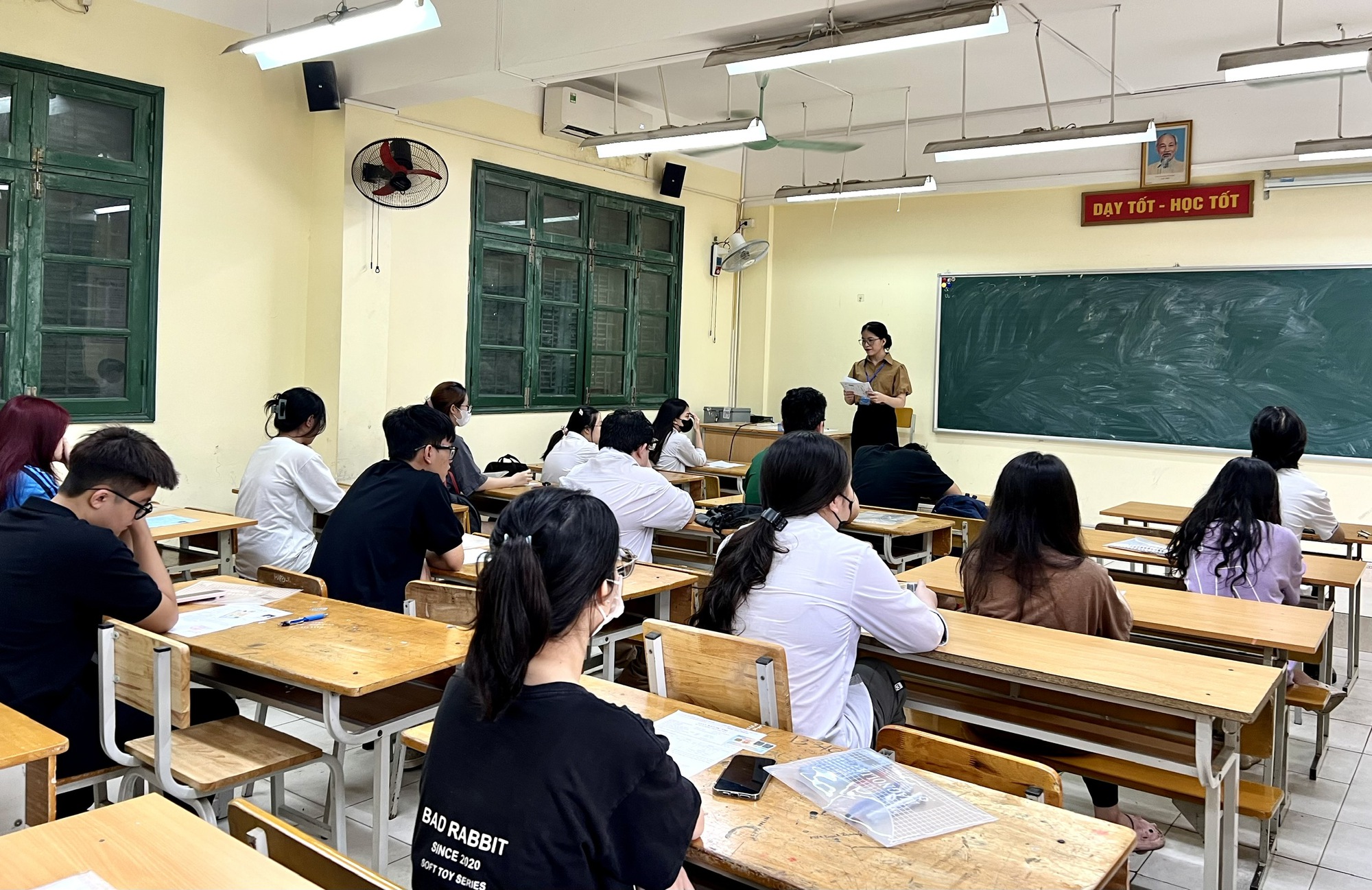Labor Code 2019 will officially take effect from January 1, 2021. There are 10 new contents regarding salary and bonus to be kept in mind by employees in Vietnam.

Vietnam: 10 new contents regarding salary and bonus from the effective date of the Labor Code 2019 (Illustration)
1. Employers in Vietnam must not force their employees to spend their salaries on goods or services of the employers (Clause 2, Article 94 of the Labor Code 2019)
The salary payment rules in Vietnam is stipulated in the Labor Code 2019 as follows:
- Employers shall directly, fully and punctually pay salaries to their employees. In the cases where an employee is not able to directly receive his/her salary, the employer may pay it through a person legally authorized by the employee.
- Employers must not restrict or interfere their employees’ spending of their salaries; must not force their employees to spend their salaries on goods or services of the employers or any particular providers decided by the employers.
Thus, the Labor Code 2019 clearly states that employers must not restrict or interfere their employees’ spending of their salaries; and must not force their employees to spend their salaries on goods or services of the employers. Additionally, the Labor Code 2019 allows employees to authorize the receipt of salaries.
2. Every time salary is paid, the employer in Vietnam shall provide the employee with a salary note (Clause 3, Article 95 of the Labor Code 2019)
This is a new provision in the Labor Code 2019:
- The employer shall pay the employee on the basis of the agreed salary, productivity and work quality.
- The salary written in the employment contract and the salary paid in reality shall be VND, unless the employee is a foreigner working in Vietnam.
- Every time salary is paid, the employer shall provide the employee with a note specifying the salary, overtime pay, nightshift pay and deductions (if any).
Previously, the Labor Code 2012 did not require the employer to provide a detailed salary note every time salary is paid. However, according to the Labor Code 2019, from January 1, 2020, every time salary is paid, the employer in Vietnam shall provide the employee with a salary note.
3. Fees for opening accounts to transfer salaries will be paid by the employer (Clause 2, Article 96 of the Labor Code 2019)
While the Labor Code 2012 specified that employers must agree with employees on fees related to opening and maintaining bank accounts for salary transfer, the Labor Code 2019 states that fees related to opening bank accounts and transferring salaries will be paid by the employer. To be specific:
- Salary shall be paid in cash or transferred to the employee’s personal bank account.
In case of bank transfer, the employer shall pay the costs of account opening and transfer.
4. In case of delay in salary payment for 15 days or more, the employer must pay interest to the employee on the delayed amount (Clause 4, Article 97 of the Labor Code 2019)
The Labor Code 2019 stipulates:
In case of a force majeure event in which the employer is unable to pay the employee on schedule after all remedial measures have been implemented, the salary shall be paid within 30 days.
In case a salary is paid at least 15 days behind schedule, the employer shall pay the employee compensation that is worth at least the interest on the amount paid behind schedule at the latest 1-month interest rate quoted by the bank at which the employee’s salary account is opened.
Thus, the Labor Code 2019 specifies that if there is a delay in salary payment for 15 days or more, the employer must pay interest to the employee on the delayed amount.
5. Regulation on salary payment in case work suspension is caused by an electricity or water supply issue (Clause 3, Article 99 of the Labor Code 2019)
The Labor Code 2019 stipulates:
In case the suspension is caused by an electricity or water supply issue that is not at the employer’s fault, or by a natural disaster, fire, major epidemic, hostility, relocation requested by a competent authority, or for economic reasons, both parties shall negotiate the salary as follows:
- If the suspension does not exceed 14 working days, the salary shall not fall below the statutory minimum wages;
- If the suspension is longer than 14 working days, the salary shall be negotiated by both parties and the salary for the first 14 days must not fall below the statutory minimum wages.
Regarding this matter, the Labor Code 2012 stipulated that salary during the work suspension period should be agreed between the parties but not lower than the region-based minimum wage set by the Government of Vietnam.
6. Addition of cases where employees can take fully paid personal leave (Clause 1, Article 115 of the Labor Code 2019)
Specifically, the Labor Code 2019 stipulates:
An employee is entitled to take a fully paid personal leave in the following circumstances, as long as it is notified to the employer in advance:
- Marriage: 03 days;
- Marriage of his/her biological child or adopted child: 01 day;
- Death of his/her biological or adoptive parent; death of his/her spouse’s biological or adoptive parent; death of spouse, biological or adopted child: 03 days.
Thus, compared to the current regulations, the Labor Code 2019 adds cases of the death of his/her biological or adoptive parent; death of his/her spouse’s biological or adoptive parent; death of spouse, biological or adopted child; when these events occur, employees are entitled to 3 fully paid days off. The previous provision stated "child" instead of clearly specifying "biological child" or "adopted child".
7. On National Day - September 2, employees are entitled to 2 fully paid days off(Clause 1, Article 112 of the Labor Code 2019)
According to the Labor Code 2019, from 2021, employees in Vietnam are entitled to 11 fully paid public holidays. To be specific:
- Gregorian Calendar New Year Holiday: 01 day (the 1st of January of the Gregorian calendar);
- Lunar New Year Holidays: 05 days;
- Victory Day: 01 day (the 30th of April of the Gregorian calendar);
- International Labor Day: 01 day (the 1st of May of the Gregorian calendar);
- National Day: 02 days (the 2nd of September of the Gregorian calendar and the previous or next day);
- Hung Kings Commemoration Day: 01 day (the 10th of the third month of the Lunar calendar).
On National Day, employees will have an additional day off compared to the current regulation and will be paid fully for these 2 days. The detailed holiday schedule will be decided by the Prime Minister of Vietnam, choosing one of the following options:
- Option 1: Off on September 1 and September 2.
- Option 2: Off on September 2 and September 3.
8. Employees have the right to unilaterally terminate their employment contract without prior notice if their salaries are not paid adequately or on schedule (Point b, Clause 2, Article 35 of the Labor Code 2019)
Specifically, employees have the right to unilaterally terminate their employment contract without prior notice if their salaries are not paid adequately or on schedule, except for the case of a force majeure event in which the employer is unable to pay the employee on schedule after all remedial measures have been implemented, the salary shall be paid within 30 days. In case a salary is paid at least 15 days behind schedule, the employer shall pay the employee a compensation that is worth at least the interest on the amount paid behind schedule at the latest 1-month interest rate quoted by the bank at which the employee’s salary account is opened
9. Female employees doing heavy work during pregnancy can reduce working hours by 1 hour per day with full pay until the end of child-rearing under 12 months old (Clause 2, Article 137 of the Labor Code 2019)
The Labor Code 2019 stipulates that whenever an employer is informed of the pregnancy of an female employee who is doing laborious, toxic or dangerous work, a highly laborious, toxic or dangerous work or any work that might negatively affect her maternity, the employer shall assign her to a less laborious or safer work, or reduce the working hours by 01 hour per day without reducing her salary, rights or benefits until her child reaches 12 months of age.er day without being subject to wage reduction or loss of rights and benefits, until the end of child-rearing under 12 months old.
10. Employees may be rewarded with money, assets, or other forms (Article 104 of the Labor Code 2019)
According to the Labor Code 2019, a bonus means an amount of money, a piece of property or item that is provided by an employer for his/her employees on the basis of the business performance or the employees’ performance. A bonus regulation shall be decided and publicly announced at the workplace by the employer after consultation with the representative organization of employees (if any). Employees can reward employees in the following forms:
+ amount of money,
+ piece of property or
+ item.
Currently, the Labor Code 2012 stipulates that bonuses are amounts that the employer rewards employees based on business performance and employees's performance.
Above are all the 10 new contents on salary and bonus policies for employees that will officially be applied from January 1, 2021. Among these, many regulations are more beneficial for employees, such as the employer covering all costs related to opening an account for salary payment, employees having the right to unilaterally terminate their employment contract without prior notice if their salaries are not paid adequately or on schedule, etc. Employees should take note to best protect their rights.
Thuy Tram
 Article table of contents
Article table of contents













